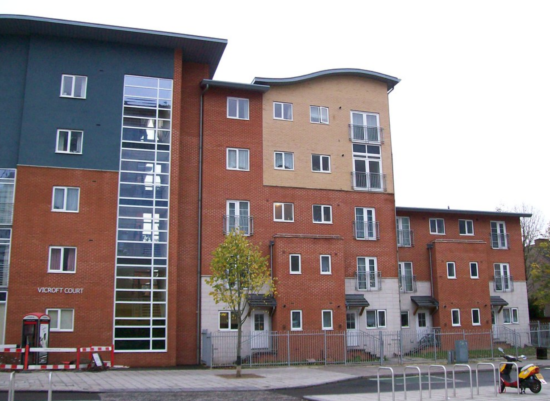Last spring, the Iowa DSA chapters held an event called the Socialist Feminist Convergence. It was a great event for lots of reasons, but one thing we talked about is the idea of a housing co-op. The idea is simple enough. How do we create more democratic (and more feminist) spaces outside the system of financialization of basic goods and services? A housing co-op is one possibility. (A tenants union is another.)
Housing co-ops are great, and I want to be the sort of person who wants to live in a housing co-op. In Iowa City, we have the River City Housing Collective, which has operated since 1977.
But even though I love the idea of a housing co-op, I don’t want to live in one. Let’s talk about why.
1. Lack of a private kitchen.
In a lot of cases, a housing co-op doesn’t have a private kitchen. There’s a shared kitchen that some number of people use. Possibly as many as 15-20 people.
Get out of my kitchen, everyone.
I do a lot of cooking, and I don’t need a dozen helpers. Plus, housing co-ops often do meal-sharing. In theory, this is great. But when you cook for a ton of people, you probably have to address issues of diet and allergy. Given that home kitchens (and home budgets) are such that you probably can’t create parallel meals or isolate food allergens, the food you’re cooking almost certainly has to be vegetarian, and might have to be vegan, gluten-free, and/or peanut-free.
I love the occasional vegetarian or vegan meal, but I don’t want it to be the bulk of my cooking. I love buying and cooking meat from the local farmers market and food co-op.
2. Lack of private space in the home.
Admittedly, I’m kind of an introvert. I don’t need a dozen people up in my business when I’m just trying to lounge around the house. Never ending, low-level interaction of the sort you get with 10-15 housemates is something I can very much do without.
3. Relying on others to perform household tasks.
I’ve lived with my partner for four(ish) years, and it’s hard enough to divide up household tasks with one other person. Imagine dividing up the dishes, cleaning, et al. with a dozen or 15! Yikes!
I really don’t want to spend my time hassling others to do household tasks.
Okay, I guess it’s possible.
It’s not that we can’t solve these issues with the housing co-op model. We could divvy up time in the kitchen to allow for private storage, tools, and space. We could carve up private time on a schedule for common spaces in the house. And we could work out collective procedures and accountability measures for the household tasks. I’m guessing the RCHC in Iowa City does some of these things.
But it’s not easy. And I don’t think it fits with the overall ethos of the housing co-op. I think most housing co-opers in Iowa city are relatively young, single, and extroverted. And in cases where they’re not, they’re committed enough to the housing co-op model to set aside any reservations.
A Housing Co-op Worth Wanting
Not all examples of a housing co-op look like the ones I’ve sketched out. What might one that I’d actually enjoy look like? Here are some thoughts.
One, there’d need to be plenty of private space. I’d prefer to live in a single-family home, though I have no strong objection to duplexes or to more communal arrangements that, nevertheless, maintain private kitchen and bathroom spaces. Personally, I have far less reservation about communal dining rooms than communal kitchens.
Two, and somewhat in tension with one, it’d need to maintain public space that people actually use. I like having private space, but I think one of the real advantages of a housing co-op is that it provides the opportunity to really get to know your fellow residents. Without, you know, being forced to “really get to know” them 24/7. Lots of apartment complexes have public space that no one uses. That’s no good for a housing co-op.
Three, it’d need to have a much wider range of ages of members. I just turned 36 years old. There’s no way I’d ever move into a house filled entirely with people who are 18-30 years old. I’d need to see some people in their 40s, 50s, and older. And maybe some children.
